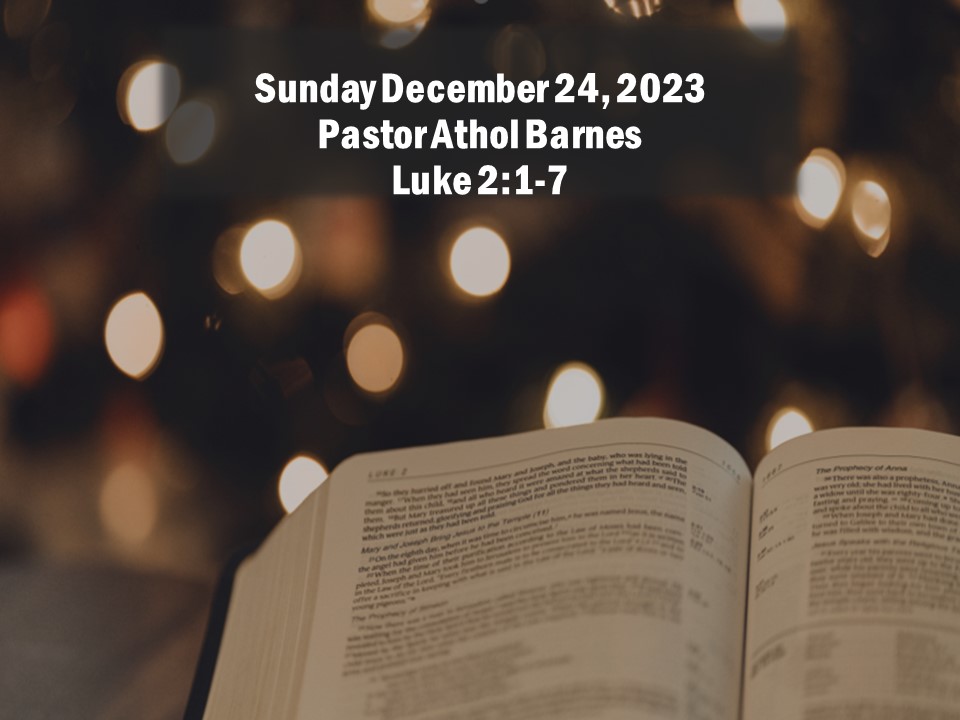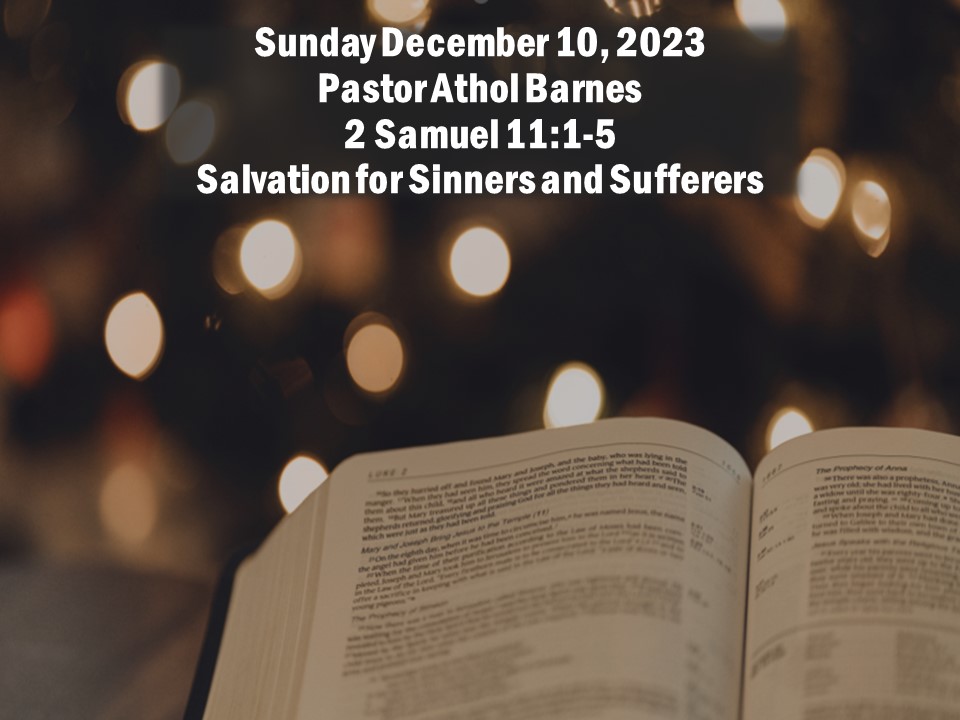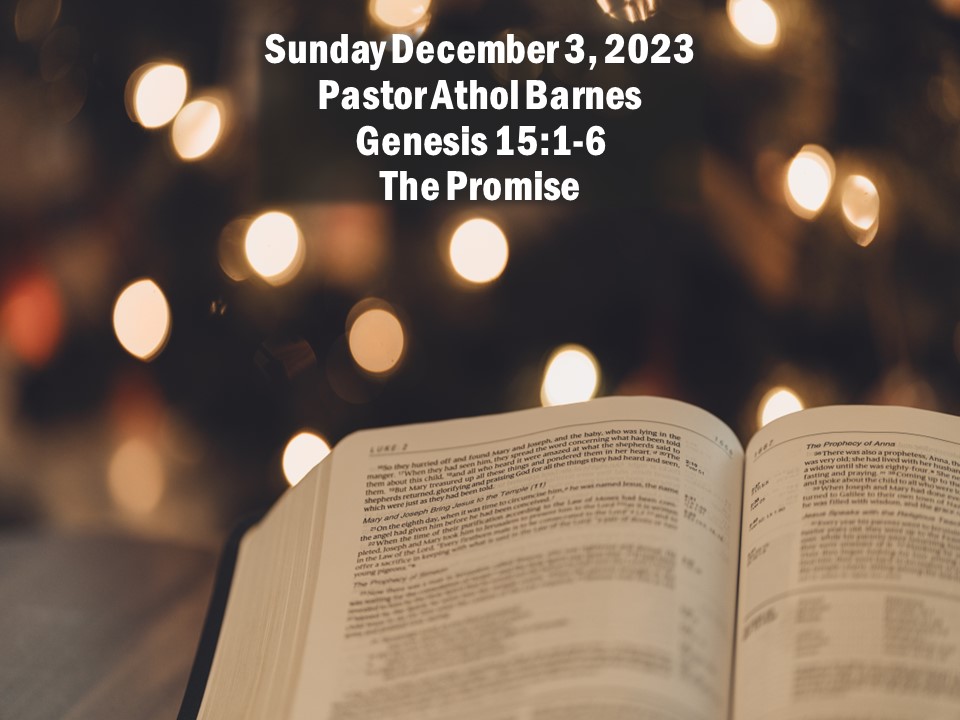
Don’t we all desire to live a life of eternal impact and to finish well for the glory of God?
Ultimately only God defines our impact; as a result, a life of impact for God must come out of a life of intimacy with God.
Sadly, so many people who start out well in life don’t finish well. So how do we finish life well?
The Apostle Peter writes this incredible statement in 2 Peter 1:3,
“His divine power has granted to us all things that pertain to life and godliness, through the knowledge of him who called us to his own glory and excellence.”
If you have given your life to the Lordship of Jesus, then you have everything you need to live a life of impact.
Why then do we frequently struggle with the same familiar sins? Why don’t we see perfect Christians?
When a baby is born, that baby has all the genetic material of a fully functioning adult, but it is still a baby. It has some growing to do. In the same way, when you were born again, God gave you His presence in the form of the Holy Spirit. You received all of the Holy Spirit, not a small portion, but you have some growing to do.
Just like a baby shares the nature and genetic structure of its parents, so too, as a born-again believer, you and I share the divine nature of our God.
The real reason why we don’t see growth and holiness in our lives as believers is not because God is not in us or has failed to give us what we need. Rather, it is because we hold on to our old sin nature. We refuse to put to death the things of the world. We forget who we are in Christ. It is not the amount of the Holy Spirit in us that is in question. It is how much of us the Holy Spirit controls. As we yield to the prompting and the leadership and lordship of the Spirit over our lives, we access everything God has already given us, and we will live a life of impact. A fruitful life.
How do we become partakers of this divine nature and live a fruitful life of eternal impact? By applying the promises of God that are found in His Word. This Bible is full of hundreds of promises for us to live this impactful life (see 2 Peter 1:4). As we learn to apply them to our lives, we grow and mature as believers.
Verse 5 then begins with a key statement, “for this reason…” Peter is saying: Because you are born again, partakers of the divine nature, this is how you are to live. He lists seven characteristics, or attributes, that we as Christians must apply to our lives.
These attributes develop and grow in our lives as we grow in our relationship with Jesus Christ, as we grow in our intimacy with him.
We must understand one important thing: we cannot do this in our own strength. We cannot change ourselves in these areas. Rather, as we cooperate with the Holy Spirit, He transforms us. But we have a part to play in this cooperation. That’s why Peter writes, “make every effort to supplement your faith with…”2 Peter 1:5.
God changes us as we submit to Him. It is a supernatural work of the grace of God.
Let’s look at each one briefly:
Virtue
Virtue relates to a person or anything in nature that fulfills its designed purpose. The calling and primary purpose of a Christian is to glorify God because we have God’s nature.
True Christian virtue is not perfecting a set of human qualities; true virtue is the divine qualities that make us more Christ-like.
Knowledge
The Greek word here means knowledge that is growing. It is more than simply knowing things; it is discernment or practical knowledge. It is the ability to process what seems to be happening or what is being said and understand what is actually happening. This knowledge, this spiritual discernment, is only derived from the Holy Spirit.
Self-Control
This is more than simply controlling your emotions; it is being led by the Spirit of God to respond rightly (see Proverbs 16:32; Philippians 3:14).
Steadfastness
This is patience or perseverance, the ability to endure the pressures and the problems of life. It’s the ability to stand firm while all around you there is pressure to quit and go with the flow. This is something we have to embrace and grow in (see James 1:2-3).
God allows these testing times to grow us and to produce in us a life that gives Him glory.
Godliness
Godliness means “godlikeness”. The Greek word means to “worship well”. To worship God is to value God above all things, putting God first in every decision of life.
Godliness is intensely practical because godliness, lived correctly, affects every decision you make.
Brotherly Affection
There is probably no single attribute that is more visible than this one. This is how we love each other in the church. It’s having sincere care and love for one another even in disagreements. This is sacrificially thinking of others first and putting one another first (see Romans 12:10 and John 13:35).
Love
This is the supernatural love of God. The sacrificial love that took Jesus to the cross to die for our sins. The love that God shows to those who are not saved, drawing them into repentance. This supernatural love can also be translated as charity, sacrificially caring for one another.
———————–
These seven characteristics are founded on faith, and the culmination of them is love (see 1 Corinthians 13:1-2). Our effectiveness, our impact, is negated by a lack of love.
These seven attributes are crucial in our fruitfulness as believers (see 2 Peter 1:8). These characteristics of the Christian life will keep us from being ineffective and unfruitful. This is true Christian life impact.
There is a glorious promise attached to these Christian attributes. Verse 10 says that “You will never fall…”.
Remember, these character qualities already exist in us because we have the divine nature in us. The reason we often don’t see growth in these attributes is because we are holding on to familiar sins: pride, bitterness, unforgiveness, and the like. These all prevent us from living the life of impact that comes from intimacy with Christ.
But make them part of your life, by means of a developing intimacy with Christ, and you will finish well (See 2 Peter 1:11).
Do you want to live a life of impact?










